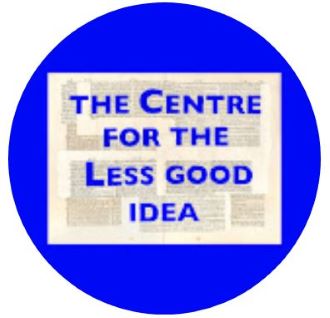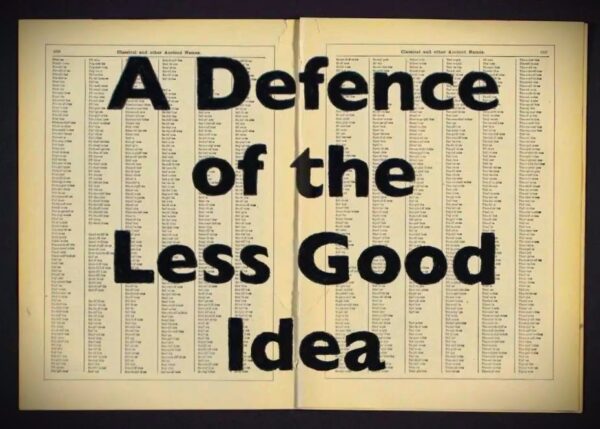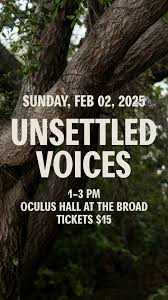E a re ngaka kgolo go retelelwa, go alafe ngakana.
(If the good doctor can’t cure you, find the less good doctor.)
–Solomon Tshekisho Plaatje (1876–1932)
The Great Yes, The Great No from the breathtaking visual artist William Kentridge is coming to The Wallis in Beverly Hills Feb 5-7, 2025 as part of Three Less Good Ideas–a residency from February 1 to 8, 2025, in L.A. that includes A Defense of the Less Good Idea, a performance-based lecture by Kentridge and Bronwyn Lace at CAP UCLA’s Nimoy Theater on Feb 1, and Unsettled Voices, a music, visual, and spoken word performance at The Broad museum on Feb. 2.
William Kentridge working at his Centre for the Less Good Idea in Johannesburg
These projects were born out of Kentridge and Lace’s The Centre for the Less Good Idea in Johannesburg, an interdisciplinary incubator space committed to free-spirited experimentation and collaborative art. William Kentridge (born Johannesburg, South Africa, 1955) is internationally acclaimed for his drawings, films, theatre and opera productions. He creates works of art that are grounded in politics, science, literature and history, yet maintains a space for contradiction and uncertainty.
The Great Yes, The Great No
Bram Goldsmith Theater, 9390 N. Santa Monica Blvd.
February 5, 6 & 7 at 7:30; February 8 at 2 & 7:30
for tickets (starting at $69), visit The Wallis
The Great Yes, The Great No is a piece of music theatre–part play, part Greek choir, part chamber opera–which tells of the 1941 historic escape from Vichy France on a cargo ship from Marseille to Martinique by, among others, surrealist André Breton, anthropologist Claude Lévi-Strauss, Cuban artist Wilfredo Lam, communist novelist Victor Serge, and author Anna Seghers. Yes/No is conceived in collaboration with theater maker Phala Ookeditse Phala and choral composer Nhlanhla Mahlangu.
The Great Yes, The Great No. Photo by Stella Olivier.
In Kentridge’s hands, the ship becomes a fantastical menagerie of thinkers, makers, and revolutionaries in a production that merges surrealist imagery with real-life events, lush South African choral music, dance, poetry and anti-rational approaches to language and image.
This real event takes a magical turn when time and space are rearranged and other celebrated figures join this new kind of ark, an allegory of all the forced expeditions of the past and present. These characters include Aimé Césaire, Franz Fanon and the Nardal sisters, the co-founders with Césaire of the anti-colonial Négritude movement in Paris, as well as the West Indian Marxist philosopher Franz Fanon, Josephine Bonaparte, Josephine Baker, Trotsky, Diego Rivera, Frida Kahlo, and Stalin.
The Great Yes, The Great No. Photo by Stella Olivier.
Kentridge launches the spectator onto one of his artistic, political and spiritual adventures of which he alone holds the secret: a chamber opera inspired by the avant-gardes of the time, mixing the surreal and irrational with masks, collages, projections shadow play and bold sculptural costumes, with spoken and projected text that explores the relationship between surrealism and the anticolonial Négritude movement, creating not only a lyrical performance, but also a vast exhibition. It’s this whole that wins us over, a powerful inventiveness of signs and forms that Kentridge manipulates with exceptional dexterity.
Executive Director & CEO of The Wallis Robert van Leer, who has crafted an amazing season, saw Yes/No workshopped last year “It offers a kaleidoscopic journey that encompasses the complex issues that define our time. Kentridge is a visionary artist whose work resonates globally and transcends boundaries. It is a powerful reminder of the role art plays in shaping both our collective memory and our future.”
A Defense of the Less Good Idea
Nimoy Theater, 1262 Westwood Blvd
Saturday, February 1, 2025 at 8
for tickets, call 310-825-2101 or visit CAPUCLA
Defense of the Less Good Idea, now in its tenth season, was part of the 2017 inaugural season of The Centre for the Less Good Idea. The series combines elements of text, live performance, and video projection, and is followed by the afore mentioned musical “catastrophes,” deliberately drowning out the logic of the performance.
This is a defining performance of The Centre, which features a series of three short form works—Mnquma, Commission Continua and Umthandazo—and a performance-based lecture that in its subject and its form serves as a window into the processes, strategies, and interests of The Centre. The lecture is ultimately disrupted by a performative “catastrophe,” collapsed by a trio of 11-minute epics—performances that hold all of the activity, emotion, humor, triumph, and tragedy of the theatrical epic in the short form.
William Kentridge
Mnquma is a performance about identity, self-discovery, and the journey of reconnecting with one’s ancestors in order to achieve a sense of belonging. Boyhood, rites of passage and the subsequent journey to becoming a man are themes that performer Xolisile Bongwana grapples with throughout, sometimes through music and the spoken word, but largely through dance – a tightly choreographed narrative communicated through a performance that’s both fluid and feverish, contemplative and compelling.
In Commission Continua, paper is a shrewd and incisive metaphor. Conceptualized by Tony Miyambo and Phala O. Phala and performed by Miyambo, the play traces the history of some of South Africa’s commissions of inquiry – The Truth and Reconciliation Commission and the Marikana Commission of Inquiry being two of the most infamous ones. Miyambo plays the part of a dedicated office worker who, like the nation’s own veneration of the historical archive, is somewhat obsessed with paper and what it represents. Through his embodiment of the extraordinary pain of ordinary people, the performance renders tangible the enduring traumas of the past and present.
Defense of the Less Good Idea (photo courtesy of CAP UCLA)
Taking its lead from the oft-overlooked victims of South Africa’s 2012 Marikana Massacre, Umthandazo employs an all-women cast to unpack the lives of the widows, children and mothers of the Marikana victims, who have come to collect the spirits and mourn the dead. Singing takes the form of prayer, tribute, mourning, perseverance and more, as performers shift between the roles of mourner and victim, and the women take turns sifting through the personal effects — boxing gloves, suit jackets, a gumboot, a bouquet of flowers — of those lost to the mines, to memory, to murder. It is through these short, affecting vignettes that we can better understand the lives of those lost, the human cost of labor, and the heavy weight of grief for those left behind. The performers are Asanda Hanabe, Anathi Conjwa, Zandile Hlatshwayo, Khokho Madlala, Mapule Moloi, Nomathamsanqa Ngoma & Thuli Magubane.
Unsettled Voices
Oculus Hall at The Broad, 221 S. Grand Avenue
Sunday, February 2, 2025 at 1pm
for tickets, visit The Broad
Tongva educator and musician Lazaro Arvizu, Jr. (Los Angeles) and Khoi Khoi violist Lynn Daphne Rudolph (Johannesburg) will perform this new work at The Broad museum in downtown L.A. Arvizu and Rudolph will invite the audience into a creative call-and-response and dialogue that engages what reconciliation means today in Tovaangar — or what we now call Los Angeles. The performance will bring us closer to the land and the practices of its original caretakers, as they reveal how their creative practices empower them.
Unsettled Voices is also a part of a multifaceted effort at The Broad through March 23 that includes the exhibition Joseph Beuys: In Defense of Nature featuring over 400 artworks that illuminate Beuys’s practice as a model for direct environmental action, drawing from the Broad’s extensive holdings of the artist’s work.
Unsettled Voices featuring Lazaro Arvizu and Lynn Daphne Rudolph Photo Courtesy of the artist, The Broad, and Lunder Institute of American Art
This coincides with a reforestation initiative Social Forest: Oaks of Tovaangar, inspired by Joseph Beuys’s profoundly influential work 7000 Eichen (7000 Oaks). Beuys’s action began in 1982 and involved planting 7,000 trees accompanied by stone markers throughout Kassel, Germany as a means to collectively reckon with the traumas of World War II. The international public project extended to New York in 1988, where this portion of 7000 Oaks now consists of 38 living trees in Chelsea, each paired with a columnar basalt marker measuring four feet tall. Social Forest: Oaks of Tovaangar — part of Getty’s landmark arts event PST ART: Art & Science Collide — encompasses the planting of 100 native trees in Elysian Park in Los Angeles and additional plantings at Kuruvungna Village Springs in West L.A. The concert and the tree planning projects present Beuys’s work and practice as more urgent than ever before, as the planet’s climate continues to warm.
Elysian Park, Los Angeles. Photo by Elon Schoenholz Photography. Courtesy of The Broad.
In addition to the L.A. residency, African Exodus by The Centre for the Less Good Idea plays Feb 27—March 2 at PAC NYC.
African Exodus (photo by Zivanai Matangi)




